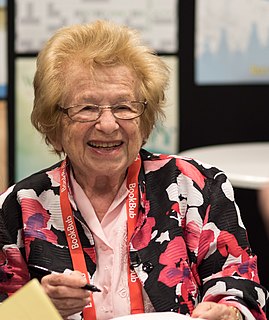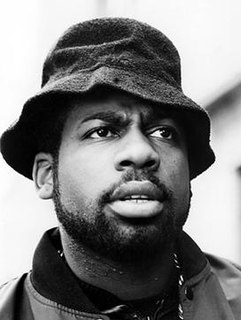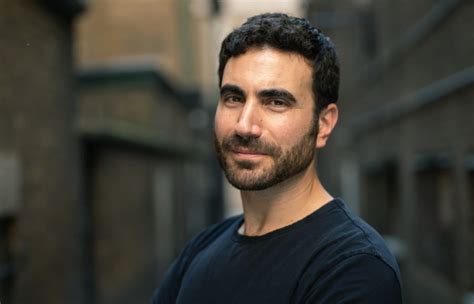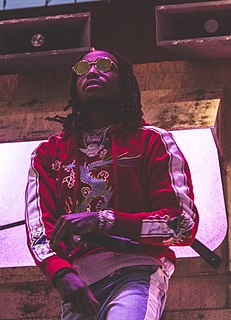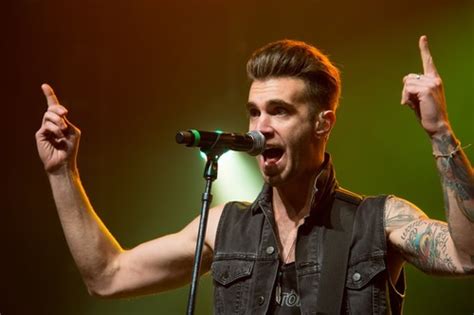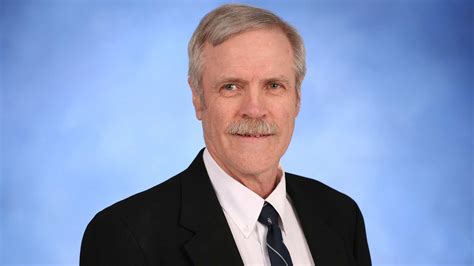A Quote by Ruth Westheimer
When I started the radio program in 1981, not many people were talking about sexuality. Not many people were talking about AIDS or HIV.
Related Quotes
I was a young feminist in the '70s. Feminism saved my life. It gave me a life. But I saw how so much of what people were saying was not matching up with what they were doing. For example, we were talking about sister solidarity, and women were putting each other down. We were talking about standing up for our rights, and women weren't leaving abusive relationships with men. There were just so many disconnects.
Will Bridges, who is the co-creator with me, when we were working on 'SuperBob,' we were just talking about how we like to write about relationships. And we were talking about what love is. We were in very different stages; he was married and was about to have his first child, and I was kind of dating the wrong people.
So many people think that practicing an art is a good way to make a living. Practicing an art, no matter how well or badly, is a way to make your soul grow, for heaven's sake. I'm talking about singing in the shower, I'm talking about dancing to the radio, I'm talking about writing a poem to a friend.
My first AIDS campaign was in 1985. There was this dark cloud, everybody was socially inspired - we hadn't seen social consciousness like that since the '60s - but most people were talking about hunger in Africa. Nobody was talking about this really ominous circumstance here in the U.S. because of this fear of stigma.
Street politics is what happens in our everyday life, living in the bando. It's the environment around us and what we doing in the streets. We [Migos] talking about how many snakes there are in the grass and talking about how people can hurt you, and talking about how that can help you gain knowledge.
We were interviewing an author, and we started talking about how so many of them - Salinger, Shaw, Fitzgerald - were really an odd bunch. They put a barrier around themselves, and not many people got through it. This was the spark that I really latched onto - someone who could break through the barrier. Of course [FINDING FORRESTER] really began to take shape when I began to wonder, what if it was a young person?
She [Hillary Clinton] knows the people well. I think there is - you know, also talking about breaking down barriers and talking about that, whether we`re talking about that in economic terms. I mean, she`s the only person who has been out there talking about white privilege and talking about sort of the intersectionality of some of these issues.
First I went to a Jewish school, when I was very little. But when I was 12, they put me in a school with a lot of traditions, and they were educated people and they were talking about Greece and the Parthenon and I don't know what. All the kids, all the girls they had already seen that and knew that from their family, and I would say, "What are you talking about, what's that?" It's not my world. My grandparents were very well-educated people, but in the Jewish tradition. They knew everything about the Bible.
To show that a comedian on stage in India talking about sanitation or in South Africa talking about HIV and AIDS awareness, if you follow the joke into their lives, you can see that, like, oh, these things aren't just contrived in joke books. This is real life. I think the best comedians have that bravery and courage to say, Oh, this is what it is.
